There has been considerable change in lives worldwide in 2020 due to the novel coronavirus, and the persistence of systemic anti-Black racism.
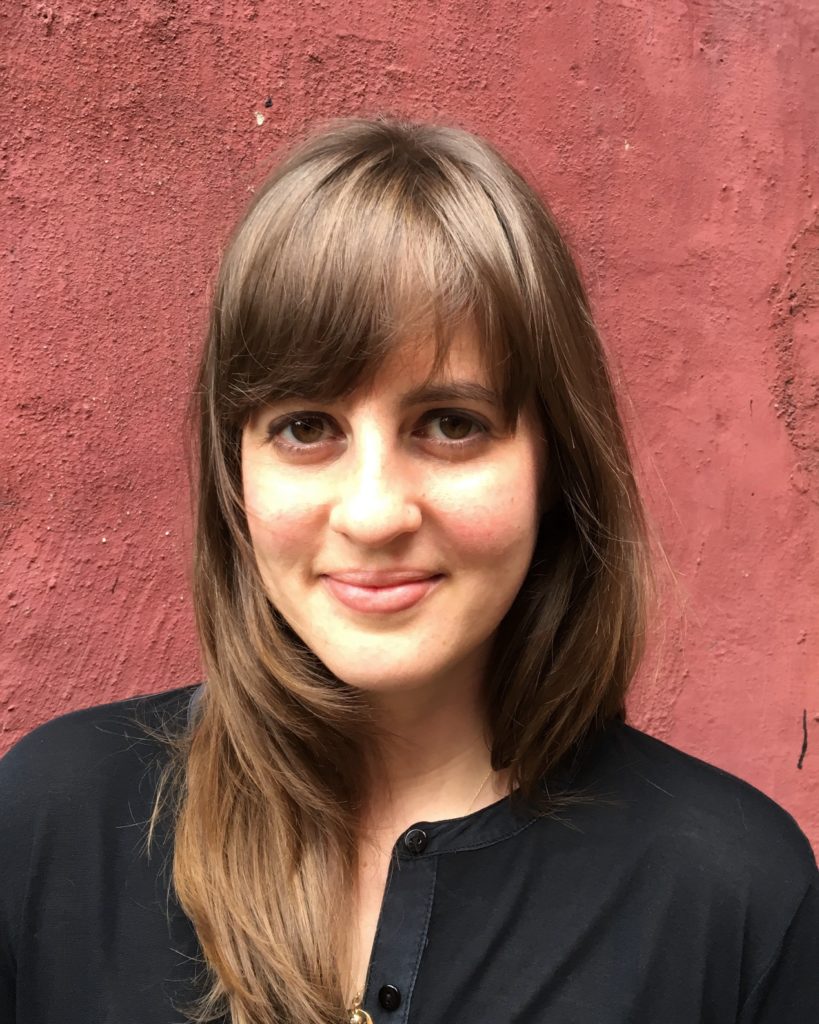
Participants in the Faculty of Education’s Borderless Higher Education for Refugees (BHER) program have seen the impact of change upon multiple fronts, because the program involves faculty, students and community partners at York’s Keele Campus, as well as in the Dadaab Refugee Complex in Kenya. Rachel Silver, an assistant professor of education at York, with the help of a team of her colleagues in both Toronto and Dadaab, has created a virtual colloquium series, Reciprocal Learning in Times of Crisis, for the program’s faculty and students and other interested parties to consider the issues arising from the confluence of education, the pandemic, and the new waves of resistance to anti-Black racism.
“We’re in this moment together, despite our different individual positions, different colonial histories, and different national public health and education system responses,” Silver said. “It’s an opportunity to learn from each other about how we make sense of and respond to a global crisis in distinct local contexts.
“We can see how systemic inequity is reflected in each space, and how COVID-19 brings to light the underlying systemic issues.”
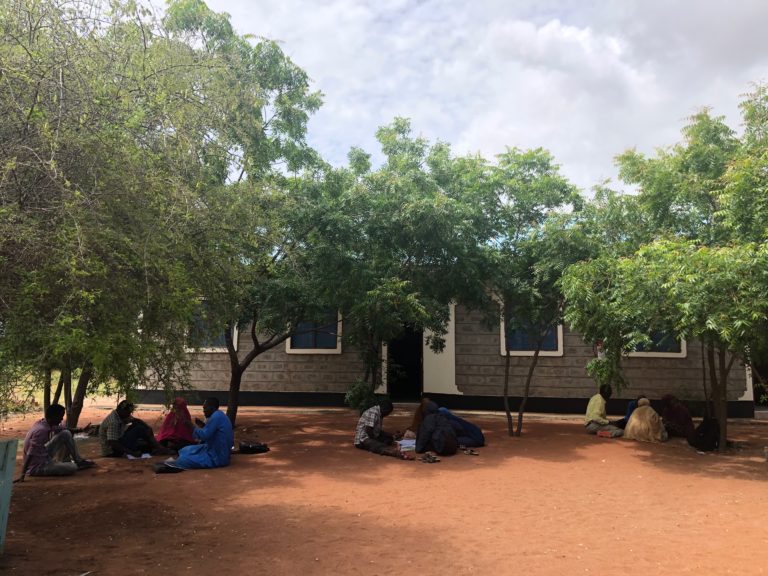
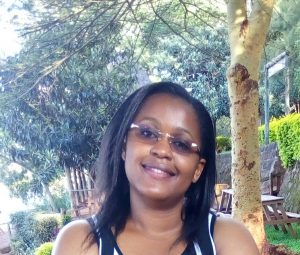
Silver put together a committee comprising Esther Munene, the academic administrator of the BHER Learning Centre in Dadaab; Philemon Misoy, the BHER project co-ordinator; Molade Osibodu, a Faculty of Education colleague whose work draws heavily on African de-colonial theories; and two international York graduate students, Sharareh Kashi from Iran and Theodata Fafa Bansah from Ghana, to plan and organize the colloquium, which is a monthly event.
“We have planned to change the format each month with different speakers and different hosts,” said Silver. “We are drawing on the talents of diverse graduate students and academics in Kenya and in Canada. But we also wanted to feature our Kenyan institutional partners and BHER students speaking from their lived experiences in the camps.”
“This series is not only for a scholarly audience, but also for community leaders, NGOs and students in both countries.”
The remaining events in the series will touch on a range of topics, including the unique needs of inter-African migrants in southern Africa during COVID-19; the Toronto diasporic community; and the gendering of pandemic-related risks in Kenya, featuring a panel of York’s academic and organizational partners there.
“The series is even more important since we haven’t been able to meet face-to-face with our York colleagues for months due to COVID-19,” said Misoy. “This really opens the lines of communication and allows us to share our experiences working during the pandemic.
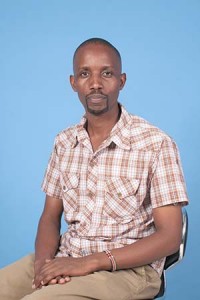
“We can look at issues of social, economic and racial discrimination and consider how we support people emerging from conflict. We can take stock of achievements and, by hearing from different people, get ideas how we can shift toward the future. It’s important for north-south relations that we can share ideas freely and help each other.”
Munene agreed.
“It’s good to get the Toronto context on many issues, such as race and gender and learn what it’s like there,” she said. “They can also get to understand our context.”
An eagerness to learn about the Dadaab context was apparent at the most recent session of Reciprocal Learning in Times of Crisis on Nov. 4. It focused on the educational challenges faced in Dadaab due to the pandemic and featured representatives of York’s partner organizations in Dadaab, as well as Abdikadir Bare Abikar, a graduate of the first class of York’s Dadaab-based Masters of Education students, who is now teaching in Somalia. All of the educational organizations based in Dadaab collaborate to ensure that there is no duplication of effort.
Schools in Dadaab have been closed since mid-March, forcing educators to be creative in offering lessons in the camps, where not every student has a computer or laptop and internet connectivity can be suspect.
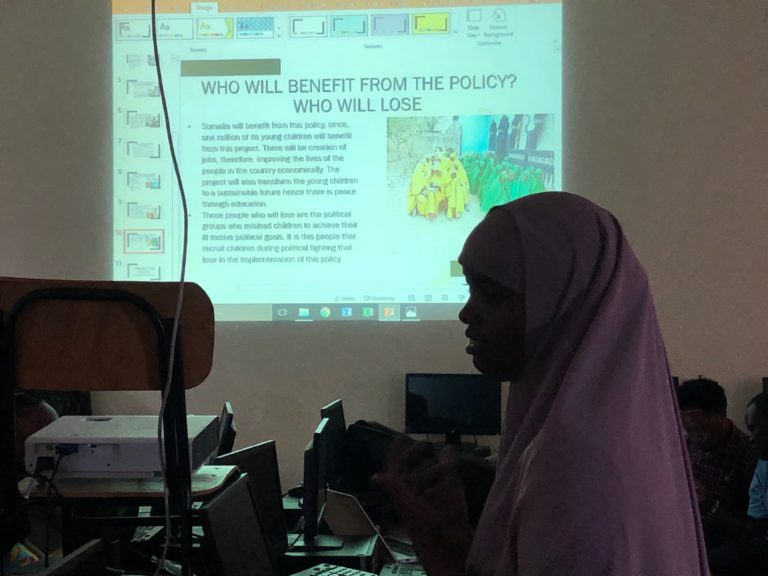
“The president of Kenya announced the school closures on a Sunday and they had to close the next day,” said Norah Kariba of Windle International Kenya, which runs the secondary schools in Dadaab. “This left students confused about how to continue.
“The quick fix was to introduce radio lessons, although not all learners were able to access them, and there wasn’t enough air time to handle all of the content. However, at least it was a starting point.
“Teachers also formed classes through WhatsApp [a popular phone application used to communicate with groups] and contacted their students. They were able to create a timetable and students were able to download lessons.”
At the university level, there was also disruption.
“Kenyan universities didn’t offer online learning,” said Munene. “It delayed graduation and caused stress, something we had to address with students. A few universities offered online exams, but exams here are usually administered in person, so it was a big hill to tackle.”
Luckily, York continued to offer online courses through its BHER project, and even though the learning centre in Dadaab was closed, students could access lectures.
“It was an abrupt shift to online learning, and many students weren’t used to the lack of interaction,” said Munene. “BHER also had to buy laptops or tablets and data bundles, so the students had access. We have learned to adapt to technological change.
“However, many students had lost jobs due to the pandemic and it was tough for them to concentrate on school. We tried to comfort them and did some mental health awareness work about the value of sharing their concerns.”
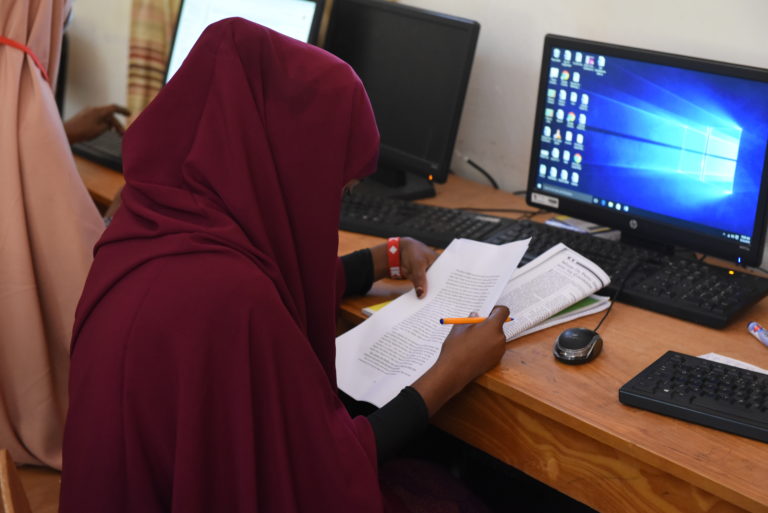
Dakane Bare, a representative of the United Nations High Commission on Refugees in Kenya, offered an observation that served as the motto for the group going forward: “With calamity comes opportunity.”
Silver and the colloquium organizing committee hope that the series continues to provide excellent opportunities for learning and connection.
“Our big goal is to push back against the notion of expertise being located only in one geo-political space, such as the university,” Silver said. “There is much learning to be done.”
Visit the series website at https://www.yorku.ca/edu/reciprocal-learning-in-times-of-crisis/ for a full listing of upcoming talks and to view the Zoom recordings from all previous talks.
By Elaine Smith, special contributing writer
Article from the November 2020 issue of Innovatus, a special issue of YFile devoted to teaching and learning innovation at York University. It offers compelling and accessible feature-length stories about York University’s commitment to excellence in teaching, learning, internationalization and the student experience.
